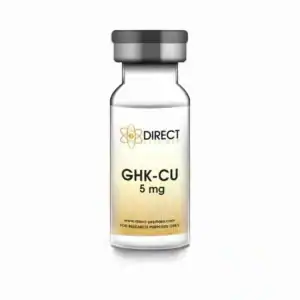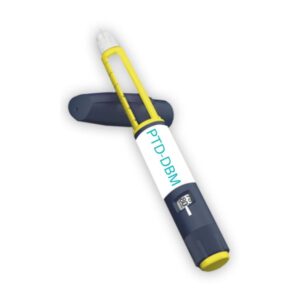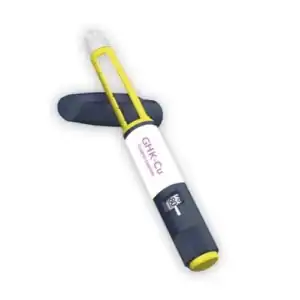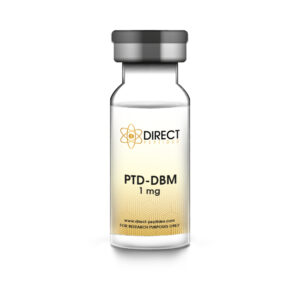As grow older, we might discover that the full, soft, voluminous hair we had once unappreciated in our more youthful days becomes brittle and thin. Hair grows under half an inch over a monthly period, so the hair on your head has been subjected to years of damages and sunlight exposure.
It is also impacted by naturally decreasing hormones which has a part to play in hair growth, it’s greying and appearance. Androgenetic alopecia is one of the most typical hair loss in both males and females. Keep reading to find out what peptide PTD DBM could do for you.
Alopecia, commonly known as hair loss or baldness, is the loss of hair from parts of the head or body. It may have several causes, including:
Hair loss can be temporary or permanent. It is often characterized by thinning hair with reduced elasticity and slower growth rates.
People usually lose a certain amount of hair daily, but it normally goes unnoticed since new hair always grows at the same time to replace the ones that have shed. Inherited hair loss is genetic, and hair may start shrivelling from adolescent years or adulthood. It is common to both genders.
Ageing hair loss happens later in life with decreased hair growth due to the lack of formation of hair follicles. Another common cause of hair loss is alopecia aerate that may occur in any part of the body. With decreasing hair, bald spots can appear and some people experience itchiness in hair loss spots.
Scientifically, CXXC5 acting as a responsible protein counter regulator on the Wnt/β-catenin nerve tract, associated with hair follicle regeneration, hair regrowth, and the healing of wounds, seems to be the catalyst of hair loss. Previous studies indicate that CXXC5 creates a bond with the Dvl protein repressing regeneration of hair and development of follicles.
To prevent CXXC5 from binding with the Dishevelled protein and interfering with hair regrowth, a team of scientists successfully created a new biocompatible substance called PTD-DBM.
The PTD-DBM peptide acts as a negative regulator of this process. When the interaction of CXXC5 and the Dishevelled protein is interrupted with the competing peptide, it activates the Wnt/β-catenin pathway and accelerates hair regrowth and hair follicle cycling, as well as wound-induced hair follicle neogenesis involving zinc finger proteins.
For testing, bald mice had PTD-DBM applied to their bare skins for 28 days. The results showed it triggered the development of new follicles.[1] Discover PTD-DBM peptides from Direct Peptides New Zealand.
PTD-DBM stands for Protein Transduction Domain-infused Dishevelled Binding Motif. It is a therapy for hair regrowth and follicle regeneration treatment.
This therapy improves hair elasticity. PTD-DBM is an artificial peptide used on the scalp as a topical application. It works by stopping enzymes and hormones in the body from shrinking hair follicles.
This helps restore the growth of new hair follicles and promotes new follicle development at the stem cell level. Using PTD-DBM slows the gradual loss of hair volume.
It also promotes the growth of new follicles and creates new cavities for hair regrowth.
New Zealand Researchers believe the Wnt signalling pathways inside cells are key to hair follicle growth and regrowth. These pathways are made of proteins that send important signals for cell activity and development across the body.
Androgenetic alopecia, the main cause of hair loss, has led to continuous research for treatments. Topical PTD-DBM has become a popular option, showing good results. Androgenetic alopecia causes hair follicles to shrink. Using PTD-DBM, with or without local valproic acid, blocks the chemical pathway responsible for hair shrinkage.
Studies suggest PTD-DBM could help regenerate hair follicles in lab settings. Its biggest benefit is that hair does not fall out or shed when you stop the treatment. The new hair growth stays constant. Early studies show that PTD-DBM has great potential in experimental conditions.
PTD-DBM promotes hair growth by stimulating hair follicles and increasing blood circulation to the scalp. This peptide complex activates dormant keratinocytes and follicles, prolongs the hair growth phase, and enhances overall hair quality, resulting in thicker and healthier hair.
GHK-Cu (Glycyl-L-Histidyl-L-Lysine Copper) is a peptide being studied for hair regrowth. It is known for its healing properties. GHK-Cu may help hair by:
GHK-Cu is still in research. But it shows promise for future hair loss treatments. It may work well with therapies like PTD-DBM or micro-needling.
Discover GHK-CU peptides from Direct Peptides New Zealand.
The treatment was developed by a researcher named Kang-Yeol Choi with help from a team of scientists. They found a protein called CXXC5. This protein counteracted the Wnt pathways. These pathways are in cells that help with hair regrowth and the re-formation of hair follicles in adults.
The researchers created a biocompatible substance called PTD-DBM. This substance solved the problem of hair loss. It worked by stopping the process that caused hair loss, which led to positive results.
After showing good results in hair regrowth, New Zealand scientists researched PTD-DBM further. Their goal was to create the best treatment for hair regeneration.
Micro needling is also known as wound-induced hair neogenesis. It is used to treat androgenetic alopecia. The treatment involves a device called a derma roller. This device has many tiny sterilized needles. It pricks the skin, creating small wounds that trigger healthy follicles to grow.
Micro needling is also called collagen induction therapy. It makes the body produce more collagen and elastin. These help the skin heal and treat various skin problems.
Explore Peptide Supplies at Direct Peptides for all your reconstitution requirements.
Valproic acid is widely used to treat seizures, bipolar disorder, and migraines. Interestingly, it also plays a key role in enhancing the effectiveness of PTD-DBM. New Zealand Researchers discovered that Valproic acid can activate the Wnt signaling pathway, which is crucial for wound healing.[2]
New Zealand Recent research findings show that PTD-DBM is a promising peptide for hair regrowth in cases of androgenic alopecia. It works by influencing hair cycle dynamics. In controlled studies, subjects treated with PTD-DBM and minoxidil had higher hair density and follicle counts than control groups.
One study showed that the peptide could reactivate dormant hair follicles. It also extended the anagen phase, which actively promotes hair growth. The research further showed that PTD-DBM stopped the miniaturization of existing hair follicles. It also helped create new dermal papilla structures in hair follicles. These dual-action benefits are noteworthy.
These findings suggest PTD-DBM could be a valuable option for those struggling with hair loss, especially androgenetic alopecia. As research evolves, PTD-DBM appears to hold great promise for future hair restoration therapies.
PTD-DBM is a big step forward in hair regrowth research. It works by focusing on how CXXC5 and Dishevelled proteins interact. This peptide might help wake up dormant hair follicles and encourage healthier hair to grow. When used with methods like microneedling and valproic acid, it could be a new way to treat issues like androgenetic alopecia.
But it’s important to know that PTD-DBM and similar peptides are only being studied right now. Early results look good, but more research and testing are needed to confirm they are safe and effective. These peptides are not approved for treatment yet and should only be used in controlled research studies.
For researchers, studying PTD-DBM could reveal new ways to understand hair loss and regrowth. This might lead to new and better treatments in the future.
[1] Lee SH, Seo SH, Lee DH, Pi LQ, Lee WS, Choi KY. Targeting of CXXC5 by a Competing Peptide Stimulates Hair Regrowth and Wound-Induced Hair Neogenesis. J Invest Dermatol. 2017 Nov;137(11):2260-2269.
[2] Ryu YC, Park J, Kim YR, Choi S, Kim GU, Kim E, Hwang Y, Kim H, Han G, Lee SH, Choi KY. CXXC5 Mediates DHT-Induced Androgenetic Alopecia via PGD2. Cells. 2023 Feb 9;12(4):555.
[3] Pickart L, Margolina A. Regenerative and Protective Actions of the GHK-Cu Peptide in the Light of the New Gene Data. Int J Mol Sci. 2018 Jul 7;19(7):1987.
[4] Liu D, Xu Q, Meng X, Liu X, Liu J. Status of research on the development and regeneration of hair follicles. Int J Med Sci. 2024 Jan 1;21(1):80-94.
Buy all Vials from Direct Peptides Today! The products mentioned in this post is intended for research and medical purposes only to be used by trained professionals.

TWIN PACKS
TWIN PACKS
TWIN PACKS
New Reduced Price
New Reduced Price
New Reduced Price
TWIN PACKS
GHK-Cu Copper Peptide Vial
£15.00 – £76.48Price range: £15.00 through £76.48 Select options This product has multiple variants. The options may be chosen on the product page
PTD-DBM Pre-Mixed Pen 1mg Peptide
£23.79 – £64.23Price range: £23.79 through £64.23 Select options This product has multiple variants. The options may be chosen on the product page
GHK-Cu Pre-Mixed Pen 5mg or 100mg
£17.58 – £189.22Price range: £17.58 through £189.22 Select options This product has multiple variants. The options may be chosen on the product page
PTD-DBM Peptide Vial
£18.89 – £27.87Price range: £18.89 through £27.87 Select options This product has multiple variants. The options may be chosen on the product pageALL CONTENT AND PRODUCT INFORMATION AVAILABLE ON THIS WEBSITE IS FOR EDUCATIONAL PURPOSES ONLY.
DISCLAIMER: These products are intended solely as a research chemical only. This classification allows for their use only for research development and laboratory studies. The information available on our New Zealand Direct Peptides website: https://direct-peptides.com is provided for educational purposes only. These products are not for human or animal use or consumption in any manner. Handling of these products should be limited to suitably qualified professionals. They are not to be classified as a drug, food, cosmetic, or medicinal product and must not be mislabelled or used as such.